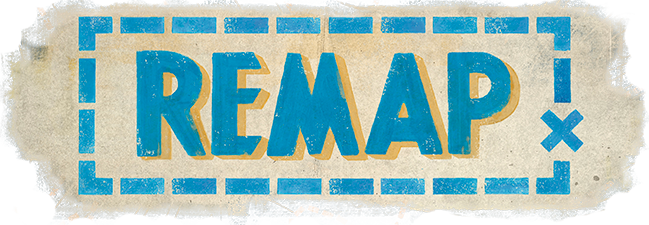In desperation, the extraordinary becomes possible.
It’s how I felt when VICE told me that seven years was, well, long enough. Many of my colleagues had started their own businesses, but I was not a business person. I can write, I can podcast, I can stream. Numbers? That’s what a calculator is for. Many times, I’ve stayed at a bad job because a bad job was better than hustling for a new one.
Own my own company? No.
Except, over time, no became “maybe” and then with some nudging, maybe became “yes.” Two years later, one of the best things that ever happened to me was losing my job, striking out on my own, and owning fate. It’s weird to think that failure on your own terms is less of an existential threat than failure because some random executive decided they weren’t interested in your contributions anymore.
These moments go in cycles, and now, it’s Polygon’s turn.
In early May, the popular video game (and over time, like many others, entertainment) publication Polygon was acquired by a company of vultures known as Valnet. Nothing good comes from Valnet. Nothing good was going to come by Valnet buying Polygon. Naturally, Valnet’s first move as Polygon’s owner was to enact mass layoffs. Polygon hasn’t been shut down, but it’s a fundamentally different place.
The thing about working at a big company is you often become more than colleagues with the people you work with but friends, folks you share interests and values with. It’s why we continued Waypoint as Remap, and why some from Polygon are headed down a similar path.
Just recently, former Polygon EIC Chris Plante launched (to much personal jealousy, as it’s long been an idea I’ve had, as well) an NPR-style podcast called Post Games. But today, I’m chatting with the folks behind another spin-off, and it’s an idea I haven’t seen tried before.
Ryan Gilliam and Jeffrey Parkin were, until recently, guides producers at Polygon. For years now, guides have been the financial underbelly of many websites, a mashup of tasty SEO bait that search engines like Google love and beloved by people who just want to know how to find that weird collectible in a game that they’ve spent an hour looking for.
Now, Gilliam and Parkin are launching Big Friendly.Guide, a publication focused on guides and trying to foster a community around guides.
Can it work? That’s what I decided to ask Gilliam.
Before we get to that conversation, though, here’s how to find and support Big Friendly.Guide, which obviously I'd recommend you do:
Now, onto the interview.
The conversation below has been lightly edited.

Remap: Talk me through that final day at Polygon. When did you realize things were going wrong, and when did you realize it was one of the worst case scenarios?
Ryan Gilliam: I actually found out that the website was being sold first, through my other Union co-workers. I was scrolling through our Union Slack when I saw everyone saying their jobs were eliminated. Then I saw people from my team saying they were eliminated. And then looked at my DMs to see Jeff—my co-founder of BigFriendly.Guide, who was also a Guides Producer— telling me to check my email. And that's where I saw that I was also being eliminated. I was in the middle of getting footage for a Destiny guide I was about to write that morning.
The second I saw the sale, I was worried, because we had fought so long and hard for our Union contract, and I couldn't imagine a Polygon without it. And then the dread of seeing that it didn't matter ... it hit twice for me. The industry sucks, and I've survived more layoffs than I can count—we were up to like two a year there for a while—but Polygon was usually safe. And then inside that bubble, in guides, I felt as safe as possible. In all the bad ways I saw it going down, this wasn't even on the radar for me. It was shocking.
Remap: I remember what it felt like when the VICE layoff happened: ah, well, it finally came for me. I felt numb. There have been so many layoffs at so many places that while it seemed inevitable I’d also get laid off, all that mental preparation made it difficult to process the reality of it. Where was your head at? Was there a moment that it all sunk in?
Gilliam: I finally felt pretty safe. After a long, long time of worrying about making myself essential and all that, I had developed skills with the guides team that made me valuable. And I saw how important the guides engine was to the success of the site. There was no reality for me where Polygon would exist with fewer guides people than we had, as it was already a pretty lean team. And, somehow, we had all missed this possibility of a bloodbath sale. Nobody I talked to was prepared or thought this was how it would go down. We thought, if anything, we'd eventually get cut down to a small staff site and guides would churn in the background.
I used to say that guides would be like the Polygon cockroach, and that they'd move us to some obscure team on another website before they'd give up traffic for the next Persona, Animal Crossing, or GTA, but didn't exactly nail that one.
Signing up is free!
By signing up—again, it costs nothing!—you can read the rest of "Can You Build a Community Around Video Game Guides?," and receive free newsletters and emailed articles from Remap!
Sign up now Already have an account? Sign in